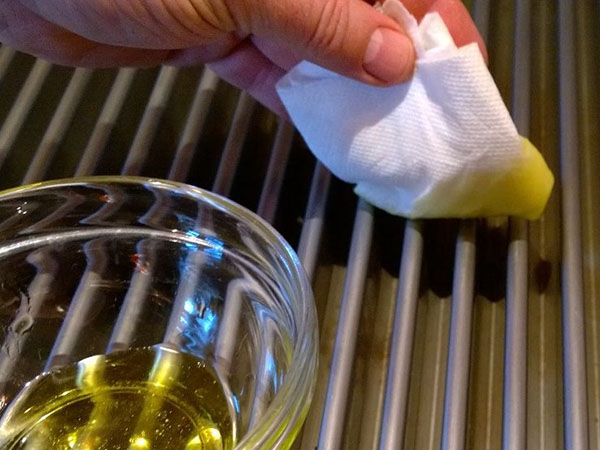How to Seasoning The Egg Barbecue Grill?
Your new grill comes with factory-made oils and contaminants that burn with nasty fumes and taint the taste of any food you cook. Flavoring is all about burning it off before it gets into your food.
When it comes to grilling, it’s all about the seasoning. Rub and marinade. Herbs and Spices. Paraffin and metal filings.
Seasoning your grill is a simple process of oiling and heating your grill before you cook it for the first time. Doing so has many benefits, including eliminating those toxic factory pollutants.
In this article, we’ll explain why seasoning the egg barbecue grill is so important, the benefits of seasoning your grill, and how to do it.
How do I season my new grill?
All new grills, whether charcoal or gas, stainless steel or cast iron, will benefit from seasoning. Just follow these simple steps.
•Rinse and air dry the grill grates thoroughly. No need to use dish soap. If you do, be sure to rinse and dry them thoroughly.
•Using an oiling brush, or even a clean (new!) paintbrush or paper towel, wipe the entire grating with a high heat-resistant oil such as vegetable, peanut, or canola oil. A bottle of spray oil or even a can of Pam will do. You can read more about the importance of choosing the right oils (those with a high “smoke point”) for grilling here.
•Lightly brush or wipe the oil on the inside of the lid, inside the pit, and on the launcher (if your grill has it). The idea here is to bake and seal the grill and grate. With cast iron, the oil actually seeps into the pores of the iron, bakes, hardens and creates a smooth nonstick coating that darkens and improves with each cooking. Click here to learn more about the magic of cast iron.
•Turn up the temperature! Light up your charcoal or turn on your petrol. You want your grill to be screaming hot.
•Let it burn and smoke and work its high heat magic in 30-40 minutes.
The appearance of the grille changes. do not worry! Shiny stainless steel will discolor and darken, and cast iron will have a smooth black sheen. These are signs of the development of a non-stick surface. This is good!
Turn it off and let it cool. Your grill is already seasoned. Get it!
Why should I season my new grill?
You should season your grill before first cooking for the following reasons:
Safety first!
As with all products from the factory, your new grill will be left with paint, manufacturing oil, and dust and metal shavings from shipping.
You don’t want to put any of these on your burgers!
Seasoning will burn off impurities and sanitize the grill. It’s a health and safety check, don’t skip the seasoning!
Easier to Cook and Clean
Seasoning will ensure that nonstick cooking is easier and your grill will function at its best.
This is because cooking oils and fats can stick to the grate, creating a smooth, non-stick surface over time. This is especially true for cast iron grates that are porous and absorb these oils and fats. Of course, the non-stick surface makes cleanup a breeze.
Better Taste
When you grill, the juices and fats in the food evaporate at high heat and coat the entire inner surface of the grill: grill, lid, pit, etc. to provide that signature grilling flavor.
Every time you burn it up, the flavor just gets better and better.
Last Longer
Finally, seasoning can prolong the life of your grill and prevent rust.
In fact, if you take the time to season your grill regularly, you’ll get years of quality grilling and flavor from your grill.
Maintain Your Grill
Just like a car, bike or lawn mower, your grill will perform better with just a little TLC.
Some people say to oil the grate after every cooking, but we recommend seasoning it every few months or so. That’s enough to prevent rust and keep the nice non-stick seasoning coating you get the first time you season your new grill.
When food sticks or you see rust, you’ll know when your grill needs to be reseasoned.
To keep your grill in top shape, simply keep it high for 10 minutes after cooking. Then scrub the grate with a good grill brush.
Don’t forget to spray or brush a thin layer of oil on a warm, clean grill. That way, your grill will be re-seasoned the next time you fire it up.
Can I Season an Old Grill?
Winter is over – BBQ season is here! You throw away the grill cover – oops!
Peeling paint and hardened dirty grates. You’re thinking: New grill. But don’t give up that shabby grill.
First, it’s not peeling paint! This is the layer of carbon that builds up from the smoke after many delicious BBQ feasts. So get out a brush, roll up your sleeves, go in with a decent grill cleaning product or some soapy water, and wipe it clean.
Next, turn on or fire your empty grill and let it burn on high for 20 minutes. This will relax and burn off even the toughest picnic of last summer.
Let the grill cool a bit, then grab your grill brush and wipe off all the grime.
OK, your grill looks so much better. The last thing to do is to season it, so go ahead and follow the steps above.
Beyond Canola Oil
You might be surprised to learn that seasoning your grill isn’t (primarily) about adding flavor. The main goal is to use oil and heat to seal and optimize the performance of the grate.
But hey, we’re all about the taste. And canola oil won’t cut it. So here are some delicious suggestions you can try to add some good smoky flavor as well as lubrication to your grate, from cook to cook.
As the grill heats up, grab your tongs and try rubbing these grates with:
•Half an onion dipped in oil
•Few slices of bacon
•A piece of fat you cut off the meat
•Smoked mesquite chips soaked in oil
In Conclusion
Just follow these easy steps to season your new grill – or maintain and reseason your old one – and you’ll enjoy years of top-notch, non-stick, easy-care grilling. No sticky meat. No bad smell. No rusted grill.

